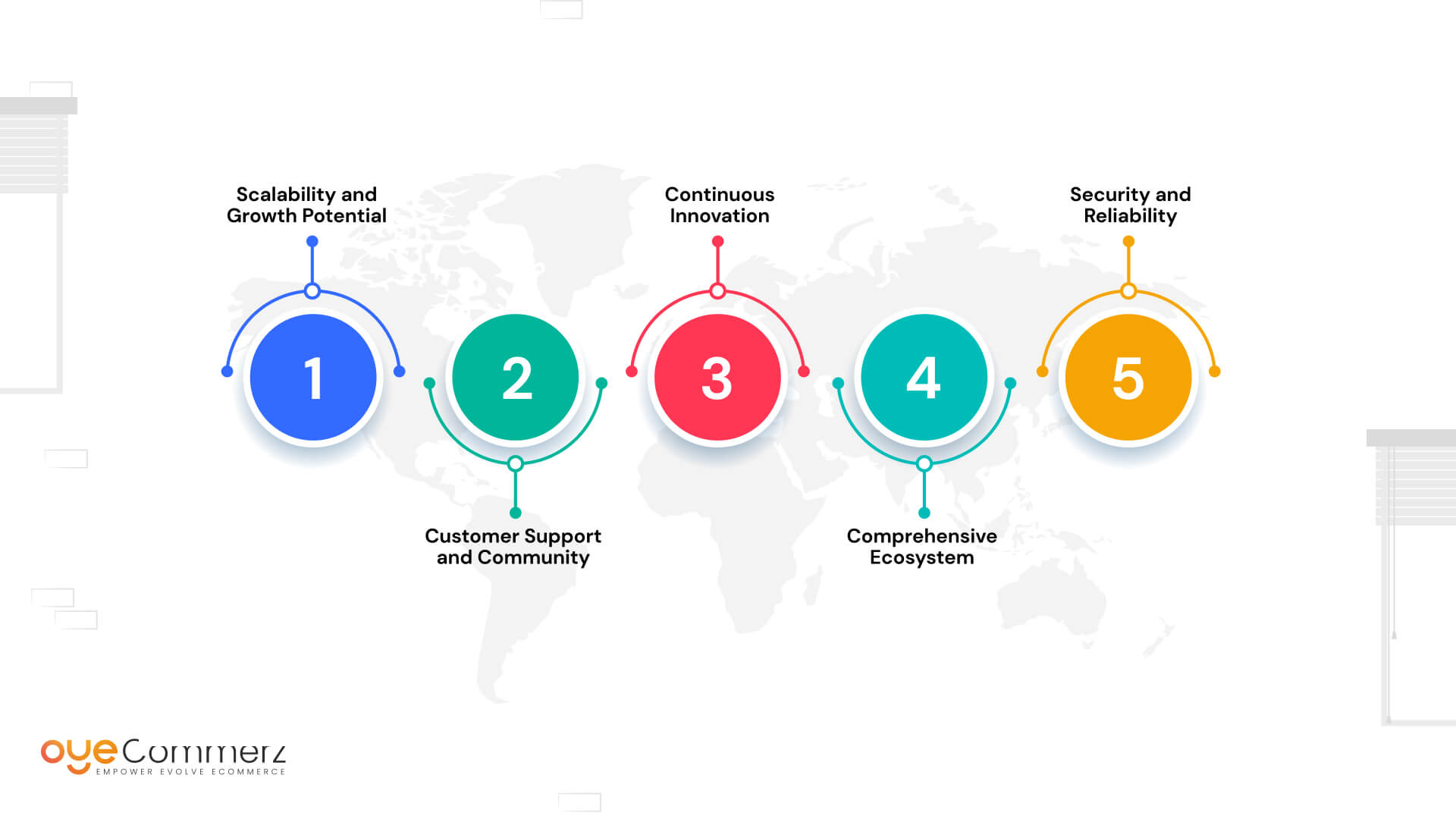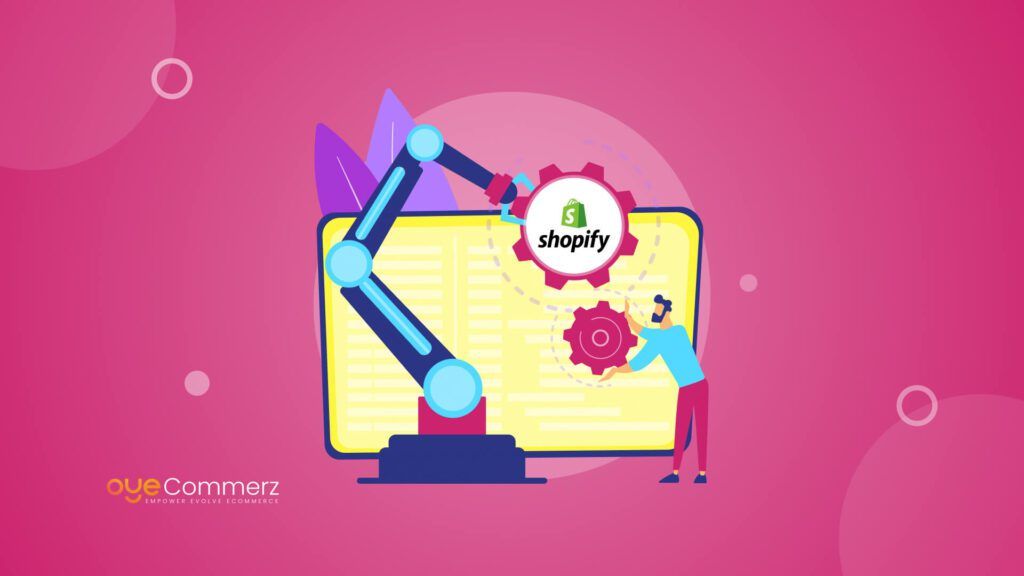Many new businesses intending to venture into e-commerce deals encounter numerous challenges, particularly in the selection of an appropriate platform on which to create their online shops. Generally, with its simple interface and good design, one might suspect that Squarespace may attract so many beginners to web designing. However, as these businesses are scaled, there are profound challenges that hamper the scalability and functionality of the said business. Such real-life issues are in the form of low levels of customization; inherent restriction of e-business capabilities; and a lack of full compatibility with sophisticated marketing applications.
The solution is Squarespace to Shopify Migration. Featuring a very strong e-commerce experience and virtually endless customization abilities, Shopify is equipped with the professional-level functionalities required to compensate for the obstacles posed by Squarespace. In this blog I compare Shopify with Squarespace eradicating the misconceptions that exist and show why Shopify’s tools surpass Squarespace, giving entrepreneurs the tools they require for future growth in their business.
Pricing Stats Comparison: Shopify & Squarespace
Shopify offers multiple pricing tiers, starting with a basic package at $29/month for new businesses, and more advanced packages at $79 and $299/month when billed annually, which cater to growing and large enterprises. Keep in mind that additional costs may arise from plugins and transaction fees. On the other hand, Squarespace has a flat-rate pricing structure that can be more budget-friendly for small businesses. Its plans include the Personal plan at $16/month, the Business plan at $23/month, and higher-tier plans for e-commerce: the Commerce Basic plan at $27/month and the Commerce Advanced plan at $49/month, all billed annually.
Shopify Vs Squarespace – Brief Understanding
Shopify
Shopify is a leading e-commerce platform designed specifically for online stores and retail point-of-sale systems. It offers a comprehensive range of features, including customizable templates, a powerful app ecosystem, advanced SEO tools, and seamless payment integration. Shopify’s focus on scalability makes it a preferred choice for businesses of all sizes, from startups to large enterprises.
Squarespace
Squarespace, on the other hand, is a highly flexible website creator In addition to being both beautiful and user-friendly. As it has profound e-commerce features, its powerful asset is its graphic interface. They are easy to use, though specifically designed for the creative sector and small enterprises seeking a clean and sleek site. Nevertheless, Squarespace might lack some of the features needed for a more sophisticated e-commerce website.

Shopify Advanced Tools Outrank Squarespace
1. Customization and Flexibility
Shopify
One of the vital components of this software is the flexibility to change almost anything and everything that is accessible in an Internet store. Theme availability, along with the possibility to modify HTML and CSS codes allows the business to create unique and company-specific looks for their storefronts. Also, there is a Shopify Liquid templating language to provide an opportunity for detailed customization according to the companies’ requirements for the shopping experience.
Squarespace
Squarespace has overall good-looking templates; however, it is not very flexible as an option when it comes to further tweaking. Compared to the content and its presentation, users at the time of designing cannot modify the templates in every single detail. This could be a major disadvantage, especially to businesses that need to create a custom online store.
2. E-commerce Features and Capabilities
Shopify
Many experiments with different e-commerce features are well implemented in Shopify. It has a full range of applications to help with the handling of products, stock, sales, and dispatch. Mobile-first design, abandoned cart recovery, multi-seller, multi-channel selling, location-based selling, and advanced analytics are integrated into the solution. Other features include its support for a wide variety of third-party applications to extend its e-commerce options.
Squarespace
Nevertheless, e-commerce capabilities are pretty limited in Squarespace although they are available at all. The platform is quite limited in many aspects that are otherwise considered crucial when establishing an online shop. For instance, Squarespace’s inventory is not as advanced as Shopify’s; thus, companies face difficulties when growing their businesses.
3. SEO and Marketing Tools
Shopify
Through the implemented SEO facilities Shopify provides enhanced SEO features for business promotion. Options such as changing the title tags, meta descriptions, and placing descriptions for the images are available. Another advantage of Shopify is the smooth compatibility with different marketing instruments, for instance, Google Analytics and Facebook Ads, which enables firms to adopt an effective marketing mix.
Squarespace
Squarespace has lesser SEO capabilities as compared to Wix. It is also decisive itself as it does include the integral tools, compared to Shopify, in the field of SEO, however, the choices are limited. As well, integration with external marketing tools is not properly implemented which affects the efficiency of marketing strategies.
4. App Integrations and Plugins
Shopify
Shopify’s most significant advantage is the numerous app store that currently boasts of apps and plugins amounting to several thousand. These apps enable businesses to introduce new features and organizational structures to stores; from direct marketing and support to complex analysis and disclosure. The beginning of app availability indicates that setting up stores is relatively easy due to the number and varieties of available opportunities.
Squarespace
Regarding integrations, Squarespace’s options are not as diverse. Though Sugar integrates third-party apps to some extent, they offer a comparatively limited choice in that regard to Shopify. This limitation may hinder the operations of a business, especially when it comes to growing the store’s capabilities and meeting new market needs.
5. Payment Gateways and Transaction Fees
Shopify
Currently, Shopify hosts over 100 payment gateways to give discretion to merchants on which payment remedy to select regarding their operations. Also, Shopify Payments which is an in-house payment processing system has reasonable transaction rates for accepting payments. It would also increase the convenience or businesses who might be looking to transfigure into multiple currencies or those businesses operating internationally.
Squarespace
Squarespace integration capabilities represent a limitation when it comes to payment gateways and their availability is somewhat limited. The platform largely works with Stripe and PayPal only, making the choices for the merchants much more galloping. Additionally, Squarespace’s transaction fees can be even more compared to the website builders like Shopify, for businesses with high levels of sales.
Why Shopify Leads the Way?

1. Scalability and Growth Potential
Shopify is an application that is specially developed to accommodate growth. It is scalability suitable for businesses’ increasing needs with tools for growth like inventory for multiple locations, enhanced reporting, and Shopify Plus for enterprises. This scalability emanates from the capability of businesses to expand their capacities without feeling the heat of a rigid e-commerce platform.
2. Customer Support and Community
Customer care from Shopify is available in different ways and is available round the clock together with through live chat, emails, and phone. The platform also has a significant user and developer base making it more comprehensive and resourceful for users. This strong backup mechanism ensures problems do not linger and the affairs of the business run smoothly.
3. Continuous Innovation
Shopify is growing constantly and updates its functionalities and brings enhancements to its users on a rather frequent basis. The fact that this platform focuses on the latest advancements in technology is a guarantee to several businesses that they will be provided with the most suitable tools they need to remain viable in the contemporary e-commerce environment.
4. Comprehensive Ecosystem
Shopify is not only a platform it also has an ecosystem of its own. Shopify POS can be helpful to businesses because it can blend the internet and physical point of sale. Shopify also provides developers, marketers, as well as entrepreneurs with a lot of material and support such as content, discussion boards, plus events. This holistic environment gives the business all the resources within which they require for their operations.
5. Security and Reliability
Most important of all, Shopify pays much attention to security and stability as its priorities. It is also worth mentioning that the platform has PCI-DSS compliance, meaning that the customers’ data is safeguarded. Shopify also offers SSL certificates for all the stores easing security and raising customer confidence. Also, the stability of the platform guarantees high availability as well as responsiveness and all of this leads to satisfaction with the platform.
Seamlessly Migrate from Squarespace to Shopify with OyeCommerz
Choose Shopify over Squarespace to overcome issues like no phone support, limited multi-currency selling, restricted payment gateways, and POS system support only in the USA. Shopify offers 24/7 support, global currency flexibility, numerous payment providers, and extensive worldwide POS features.
OyeCommerz excels in Squarespace to Shopify migration with a dedicated team of experts ensuring smooth transitions, data integrity, SEO ranking preservation, and custom functionality replication. Partner with OyeCommerz to enhance your e-commerce capabilities and achieve a truly upgraded online store experience.
Contact to Migrate your Site to Shopify Now
Conclusion
Choosing the right e-commerce platform is crucial for business success. While Squarespace offers ease of use and aesthetic design, it lacks the advanced features necessary for growing businesses. Shopify, with its superior e-commerce capabilities, extensive customization options, and robust app ecosystem, outperforms Squarespace in critical areas.
Shopify’s scalable solutions, continuous innovation, and comprehensive support empower entrepreneurs to build and grow their online businesses effectively. Whether you’re a startup establishing an online presence or an enterprise expanding globally, Shopify provides the advanced tools and features needed to succeed in the dynamic e-commerce landscape.




